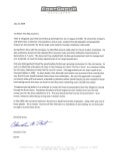
 Your motivation: what sparked your interest, and why do you want to study medicine?. However, a few key points you should try to answer are: You may be surprised to find out that there are no hard and fast rules as to how you should write your personal statement. Your personal statement will both allow you to demonstrate your passion for medicine and discuss some academic subjects you might be interested in, allowing you to come across as an enthusiastic, well-informed applicant. Your personal statement might serve as a great starting point at interview, easing you into a situation which you might initially find nerve-wracking. This does not mean that you need to write a weird and wacky personal statement, but one that is unique and effective in portraying your interest and experiences in medicine so far. Therefore, your personal statement is your chance to stand out from the crowd and give an insight into why medical schools should choose you. Personal statements can differentiate you from other applicants as most have strong GCSE grades and A-Level predictions, alongside stellar references.
Your motivation: what sparked your interest, and why do you want to study medicine?. However, a few key points you should try to answer are: You may be surprised to find out that there are no hard and fast rules as to how you should write your personal statement. Your personal statement will both allow you to demonstrate your passion for medicine and discuss some academic subjects you might be interested in, allowing you to come across as an enthusiastic, well-informed applicant. Your personal statement might serve as a great starting point at interview, easing you into a situation which you might initially find nerve-wracking. This does not mean that you need to write a weird and wacky personal statement, but one that is unique and effective in portraying your interest and experiences in medicine so far. Therefore, your personal statement is your chance to stand out from the crowd and give an insight into why medical schools should choose you. Personal statements can differentiate you from other applicants as most have strong GCSE grades and A-Level predictions, alongside stellar references. 
Why is the personal statement so important? So, without further ado, let’s get started! Although Hogwarts doesn’t require a written application, unfortunately for you, Oxbridge alongside other medical schools does in the form of the UCAS application, which includes the daunting personal statement! We will break down the do’s and don’ts of writing your personal statement, as well as directing you towards useful resources and examples.

Welcome back to another blog post in our Oxbridge Resources series! Following our blog post on the non-academic opportunities available, we will now be giving you some advice on how to write an amazing personal statement that will make you stand out. Tips and Tricks for the Personal Statement







 0 kommentar(er)
0 kommentar(er)
